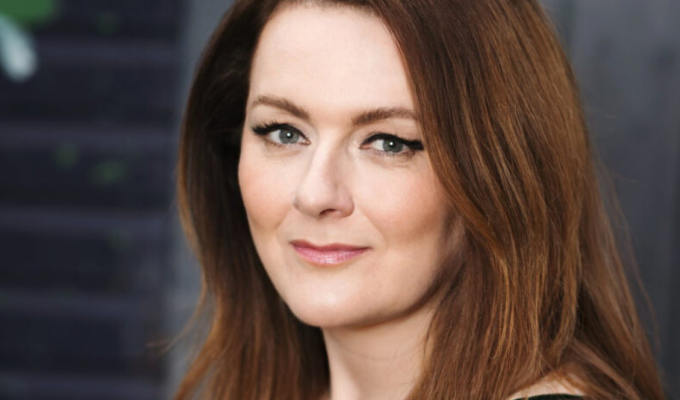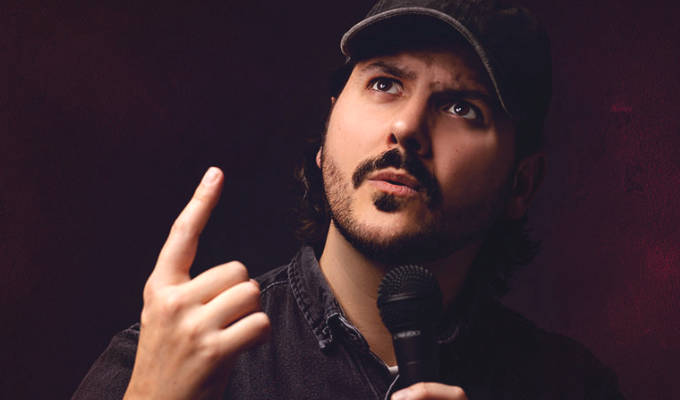
Don't Make Me Laugh by Julia Raeside
Jay Richardson reviews the new novel about predators on the comedy circuit
Not a week goes by without revelations of showbusiness toxic male behaviour. Notwithstanding high-profile allegations about the likes of Louis CK and Russell Brand, however, there's a sense that the comedy industry hasn't truly had its #MeToo reckoning yet, a feeling that its sexual predators continue to operate more-or-less with impunity and in plain sight.
Julia Raeside's bracing debut novel seeks to spotlight that injustice, with the journalist presenting a credible, tightly plotted and grimly funny portrayal of a celebrated stand-up who's also a charming and calculating serial abuser.
Her protagonist, Ali, is a 40-year-old radio producer in London, still grieving the recent death of her father and picking herself up after a messy workplace affair, tasked by her unsavoury boss with persuading one of his favourite comics to host a new show on his network.
Backstage gossip about the act's behaviour with women prompts her to look elsewhere. She's drawn to Ed Catchpole, an appealingly shambolic stand-up and attentive listener who sparks strong yearnings in her, while handily also fitting her radio brief. Sucked into his boozy, late-night world and soon lobbying on his behalf, the pair begin an intense, intoxicating relationship that's more like a meeting of souls than bodies.
Meanwhile, Ali is discovering WhatsApps set up by women in comedy alerting each other to sex pests, specifically a group that goes by the name of Scold's Bridal. Supported by his own network of women, Ed isn't on anybody's radar. She builds friendships with his inhibited assistant, Sid, and Bethan, a fiery, upcoming comic that she hopes to sign as Ed's co-host on the airwaves.
, Ed isn't on anybody's radar. She builds friendships with his inhibited assistant, Sid, and Bethan, a fiery, upcoming comic that she hopes to sign as Ed's co-host on the airwaves.
Obviously, it's no spoiler to disclose that Ed is not the loveable rogue he appears to be. Raeside superbly conveys his appeal, at first with just sparing hints of the monster behind the mask, his 'nice guy' persona contrasted with the other, more straightforwardly terrible men that Ali encounters.
Crucially, their relationship is unusual, patently dysfunctional but entirely believable, at times evolving gradually then dizzyingly rushing forward, conducted in large part through flirtatious texts and emails.
Raeside offers her thanks to a number of comedians, producers and radio talent in her acknowledgements. She's clearly spent lots of time in crowds and around comics, researching and really appreciating the business, despite the dangers she spotlights.
She never commits the cardinal sin that undermines so many narrative representations of stand-up, attempting to recreate chunks of supposedly killer material. Rather, she judiciously quotes the odd line and shares just enough of the framing and motivation behind routines to give you the whole sense of them.
Indeed, this is a finely sketched portrait of UK comedy that smacks of authenticity, the London circuit, the twilight of television panel shows and the novel's almost too-perfect denouement at the Edinburgh Fringe, a natural final act.
The coming together of Ali's sisterhood of wronged women in the heady atmosphere of the festival hurtles the novel towards a gripping climax and satisfying resolution, up to and including an exquisite epilogue. Arguably, it's a bit too neat.
Equally though, the direct action of Scold's Bridal expands upon a number of real-life precedents with bravura inventiveness on Raeside's part, offering examples to perhaps be put into future practice.
Various characters suggest real-life counterparts. Or rather, they feel like composites of two or three comedians, agents or whoever. None are so transparent that Raeside ought to fear calls from lawyers. But there are just enough correspondences to maybe cause one or two still-to-be exposed rotten apples to glance over their shoulder more carefully.
In fact, Don’t Make Me Laugh presents an overflowing and decomposing orchard of patriarchal abuse and exploitation at every level of the comedy industry and lurking around every corner of society. With the exception of Ali's late father and a cameo from a not-entirely-insensitive pensioner at a bus stop, there are zero good men in this story. Which arguably weakens the characterisation but perhaps more forcibly skewers the issue. Why are men so quiet and disengaged from denouncing the worst scumbags among them?
The clutch of chapters given to Ed's inner thoughts, rather than Ali's, work against the novel, making him easier to dismiss, a more stereotypical creep, stripping away some of his seductive enigma and the seductive power of humour in general.
But that detracts surprisingly little from a timely tale with broad appeal, which is absorbing yet angry, with a filmic quality that cries out for a screen adaptation.
• Don't Make Me Laugh by Julia Raeside is published today by Bedford Square Publishers. It is available from Amazon for £5.99 on Kindle and £12.99 in hardback, or – or from uk.bookshop.org, below, which supports independent bookstores:
Published: 13 Feb 2025








